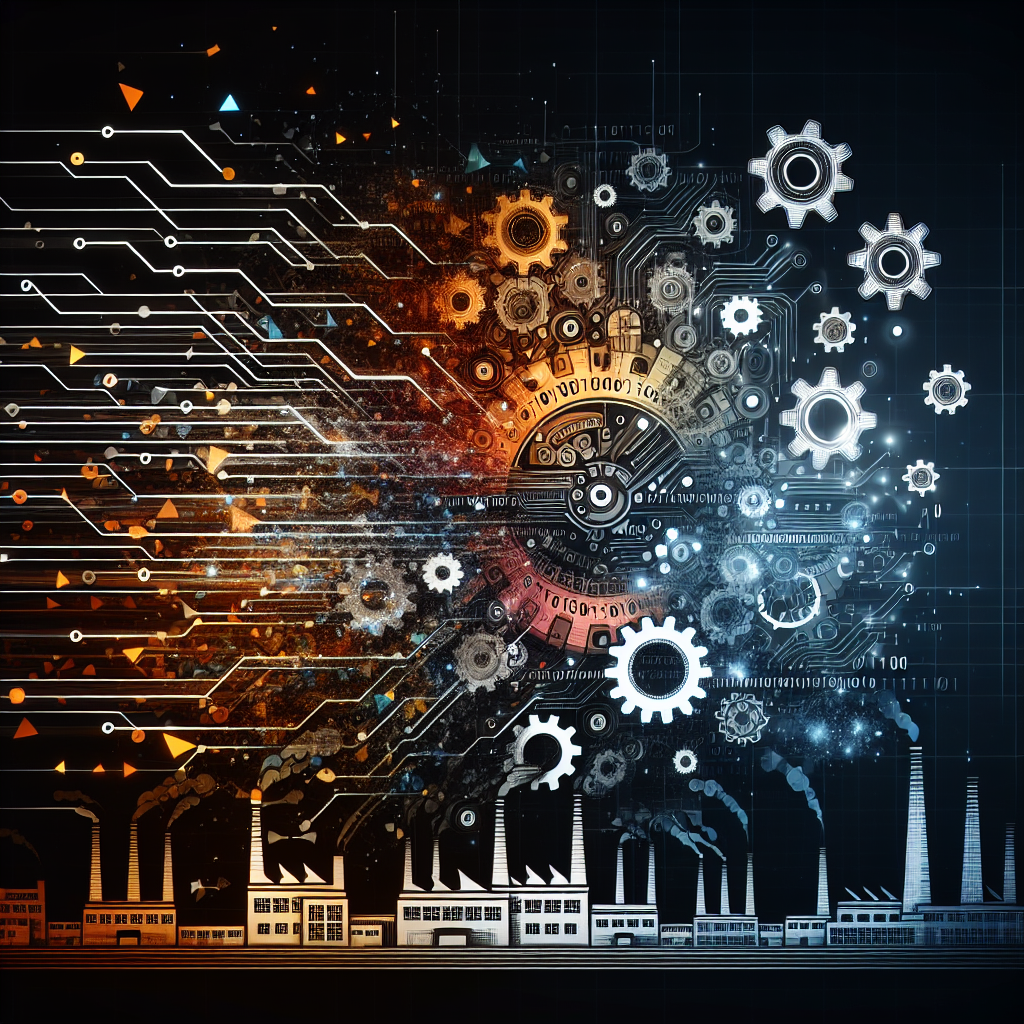Artificial Intelligence (AI) and Machine Learning (ML) are revolutionizing industries across the globe, driving innovation, increasing efficiency, and transforming the way businesses operate. From healthcare to finance, from manufacturing to marketing, AI and ML are reshaping the landscape of various sectors, creating new opportunities and solving complex challenges. In this article, we will explore how AI and ML are transforming industries and the impact they are having on businesses and society as a whole.
1. Healthcare
AI and ML are making significant advancements in the healthcare industry, revolutionizing patient care, diagnosis, and treatment. These technologies are being used to analyze medical images, predict diseases, personalize treatment plans, and improve patient outcomes. AI-powered tools can help healthcare providers make more accurate diagnoses, reduce medical errors, and streamline administrative processes. For example, AI algorithms can analyze medical images such as X-rays and MRIs to detect abnormalities and assist radiologists in making more accurate diagnoses. ML models can also be used to predict patient outcomes and recommend personalized treatment plans based on individual health data.
2. Finance
In the finance industry, AI and ML technologies are being used to automate processes, detect fraud, predict market trends, and personalize customer experiences. Financial institutions are leveraging AI-powered chatbots to provide customer support, ML algorithms to analyze financial data and make investment decisions, and predictive analytics to identify potential risks and opportunities. AI is also being used to improve credit scoring models, detect fraudulent transactions, and optimize trading strategies. By harnessing the power of AI and ML, financial companies can enhance operational efficiency, reduce costs, and deliver more personalized services to their customers.
3. Manufacturing
AI and ML are transforming the manufacturing industry by optimizing production processes, improving quality control, and enabling predictive maintenance. AI-powered robots and drones are being used to automate repetitive tasks, ML algorithms are being deployed to optimize supply chain management, and predictive analytics are being used to forecast demand and prevent equipment failures. By incorporating AI and ML technologies into their operations, manufacturers can increase productivity, reduce downtime, and improve overall efficiency. These technologies are also enabling the development of smart factories, where machines communicate with each other and make autonomous decisions to optimize production processes.
4. Marketing
In the marketing industry, AI and ML are being used to analyze customer data, personalize marketing campaigns, and optimize advertising strategies. AI-powered tools can segment customers based on their behavior and preferences, predict their purchasing patterns, and recommend personalized products or services. ML algorithms can also analyze social media data to identify trends, sentiment, and influencers, helping marketers to target the right audience with the right message at the right time. By leveraging AI and ML technologies, marketers can improve customer engagement, increase conversion rates, and drive revenue growth.
5. Transportation
AI and ML technologies are revolutionizing the transportation industry, enabling the development of autonomous vehicles, optimizing traffic flow, and improving logistics operations. Self-driving cars and trucks are being developed using AI algorithms to navigate roads, detect obstacles, and make real-time decisions. ML models are being used to optimize route planning, reduce fuel consumption, and improve delivery times. By harnessing the power of AI and ML, transportation companies can increase safety, reduce emissions, and enhance overall efficiency in their operations.
FAQs:
Q: What is the difference between AI and ML?
A: AI refers to the broader concept of machines being able to carry out tasks in a way that we would consider “smart.” ML is a subset of AI that involves the use of algorithms and statistical models to enable machines to learn from data and make predictions or decisions without being explicitly programmed.
Q: How is AI impacting job roles in various industries?
A: AI is automating repetitive tasks and augmenting human capabilities in various industries, leading to the creation of new job roles and the transformation of existing ones. While some jobs may be displaced by AI, new opportunities are also emerging in areas such as data science, AI engineering, and machine learning.
Q: What are the ethical implications of AI and ML?
A: The use of AI and ML raises ethical concerns around issues such as bias in algorithms, data privacy, and the impact on employment. It is essential for businesses and policymakers to address these ethical considerations and ensure that AI technologies are developed and deployed responsibly.
In conclusion, AI and ML are transforming industries in unprecedented ways, driving innovation, increasing efficiency, and creating new opportunities for businesses to thrive. By harnessing the power of these technologies, companies can unlock new insights, optimize processes, and deliver more personalized experiences to their customers. As AI and ML continue to evolve, the possibilities for transformation across industries are endless, paving the way for a more intelligent and connected future.

